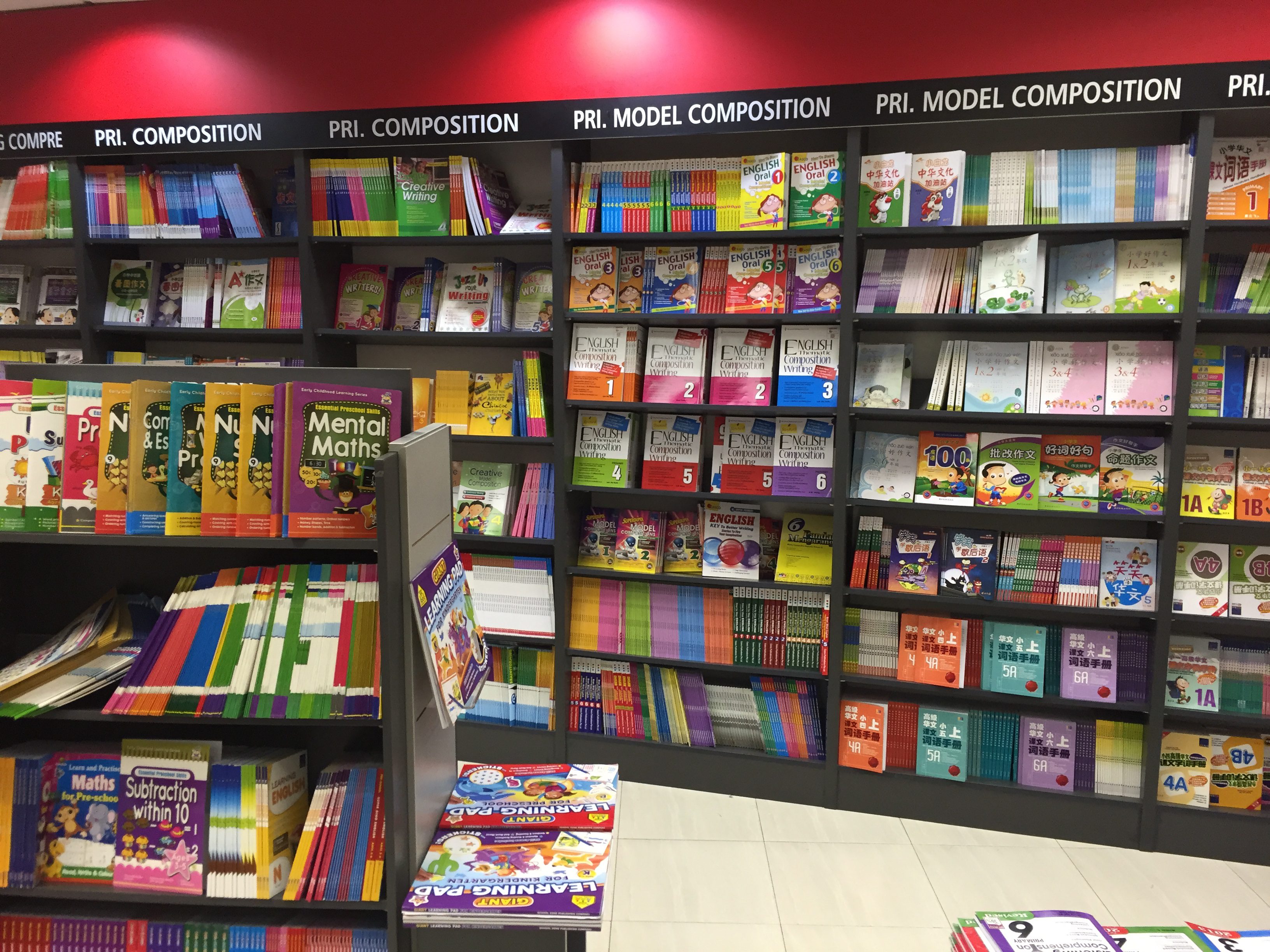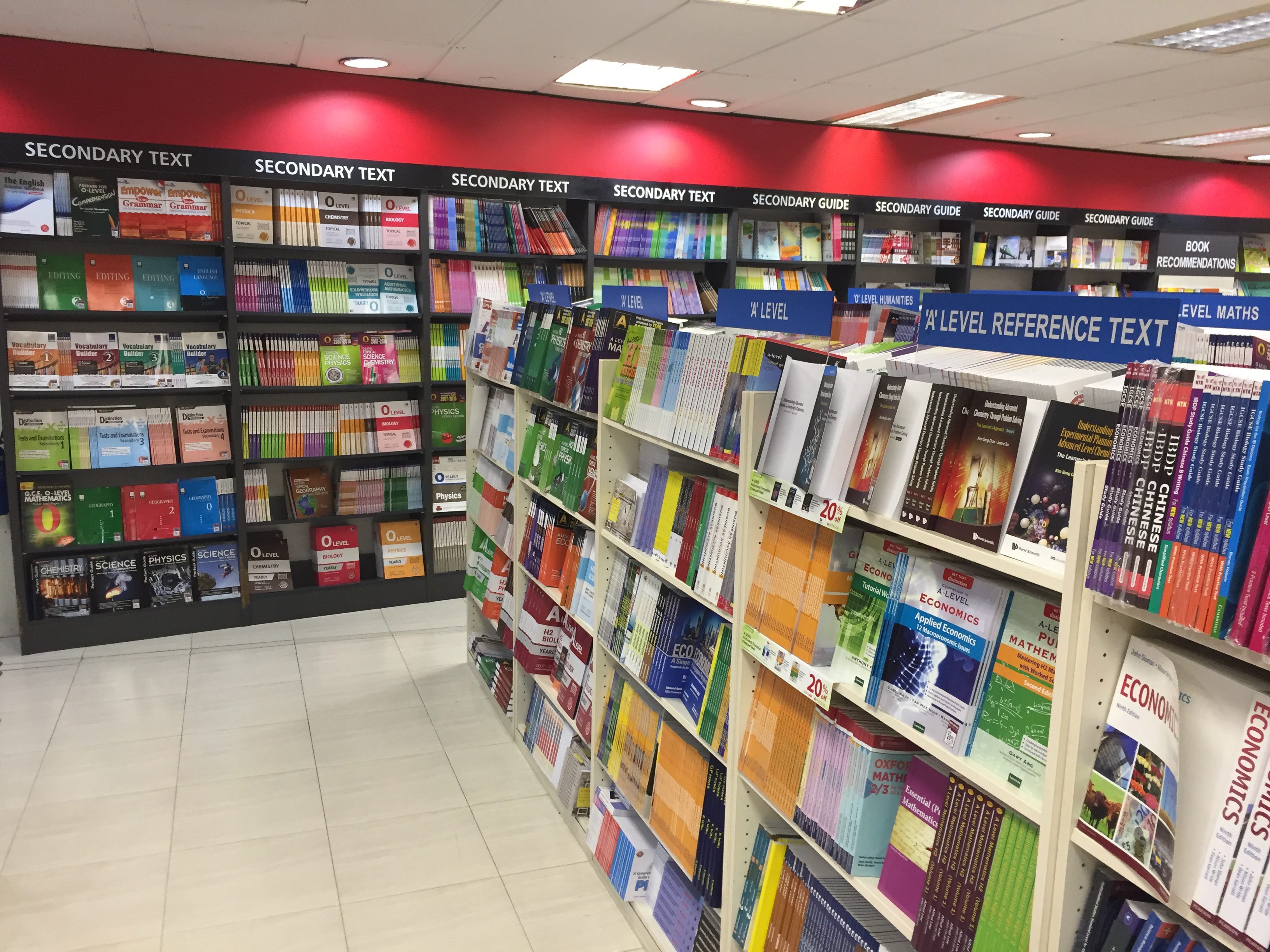
By Marcus Goh and Adrian Kuek
If you’ve ever bought an assessment book (or been tasked to do so), you’ll understand how daunting it is. There are so many brands, so many shelves, and they don’t even put all the ones for the same level and subject in the same place! Also, if you’re not familiar with the subject, you might not know what exactly to look out for.
That’s why the assessment book section of any book store (though if we are to be honest, we’re all thinking of the same book store) is overwhelming. So here’s a quick guide to getting good assessment books. If your child is going to be spending time practising, make sure they get quality practice from good assessment books.

1. Check that the assessment book adheres to the current PSLE format
This entails a little bit of homework. First, go to the Singapore Examinations and Assessment Board and Ministry of Education websites and look up the subject in question. Check if there is a new PSLE format and what year it will take effect in. If your child is going to be taking the PSLE in that year or after, then he or she should do assessment books that have been written in the latest format.
Then take a look at the assessment book. If it’s aligned with the new PSLE format, it will usually be stated in a large star or circle in the corner of the book. Buy assessment books that are updated with the new PSLE format so that your children will be familiarising themselves with questions that they will encounter in that watershed exam, rather than doing question types that are no longer tested.

2. Check that the assessment book was last updated within 2 years of your purchase date
Updates and revisions don’t just happen to the PSLE format — they also happen to the syllabus. Sometimes certain question types are no longer tested, or entire topics can get overhauled.
That’s why it’s important that you buy the most updated assessment book available. It will be based on the most updated syllabus or any other modifications to the subject that MOE has made. Otherwise your child will be working off outdated materials, and this might not just be a waste of time — it might be even detrimental for their exams.

3. Check that the answer scheme has explanations
A question is only as good as its answer, and that’s where the answer scheme comes in. A good answer scheme doesn’t just give you the answers, it gives you the working and explanation.
This is especially important for Maths, since you need to see what the working is for problem sums. To some degree, Science assessment books also have explanations in the answer to facilitate understanding and learning of key concepts as well.
However, not every question needs an explanation, like MCQs. But for open-ended questions or problem sums, having an explanation for the answer is ideal.

4. Check that it has notes or topical revision
While your child might already have notes from the subject, it’s also good to have some references in the assessment book itself. This is so that your child has help and guidance within the assessment book if they run into any difficulties answering the question.
Remember that assessment books are unassisted practice, so your child will need to have some materials to fall back on if they have any doubts.

5. Look for books by subject, rather than by level
Most assessment book stores will group books by level and subject. Like supermarkets and departmental stores, they will occasionally change the layout of the section. This means that books can get shuffled around all the time.
However, the subject shelves are usually larger and more comprehensive than the level (Primary 1, Primary 2, and so on) shelves. It’s easier to make comparisons between similar assessment books, and to get a good feel for what a good assessment book for that subject should contain. So check the subject shelf first, unless you have a particular title in mind.
![]()
Practice makes perfect, so get the best practice you can with a good assessment book!
This article was written for and first published on Yahoo Singapore’s Grade Expectations.
Grade Expectations is a weekly feature on education in Singapore. Expect fun activities, useful tips and insightful news on learning. It’s not just about your child’s grades — it’s about raising a great child!
Marcus Goh runs Write-Handed, a creative writing studio. At the same time, he teaches English at The Write Connection. He has been a specialist tutor for English and Literature (Secondary) since 2005.
Adrian Kuek runs Joyous Learning, an enrichment centre that specialises in English, Mathematics, Science and Creative Writing for Primary. He previously served as the academic director of one of Singapore’s largest enrichment centre chains for over seven years.
If you liked the article, follow me on Facebook and Twitter for more (presumably) good updates!
To get in touch with me, send an email!
Leave a Reply